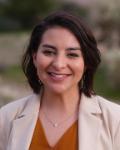99% Match Rate
Students matched at pre-doctoral interns
7 Active Research Labs
...that contribute meaningful scholarship to the field
97.6% Licensure Rate
Percentage of eligible graduates who earned professional licensure in the past 10 years
In a world filled with injustice and suffering, the APA-accredited Psy.D. in Clinical Psychology from the Wheaton College Graduate School will form you into a Clinical Psychologist who meets the needs of others with a practice built upon an integrated, academically rigorous, justice and service-focused, and biblically grounded foundation.
Students matched at pre-doctoral interns
...that contribute meaningful scholarship to the field
Percentage of eligible graduates who earned professional licensure in the past 10 years
Or reach out to us anytime at graduate.admissions@wheaton.edu.
/prod02/channel_1/media/graduate-school/degrees/psychology/phd/WC-neuroscience-78-red.jpg)
Fifteen School of Psychology, Counseling, and Family Therapy faculty members play a role in the clinical psychology program. All seven core faculty are 100% dedicated to the doctoral programs. All of the core faculty members have attended doctoral programs and internships that are accredited by the American Psychological Association. Consistent with the training model employed, every effort has been made to attract scholars with strong interests in clinical practice and practitioners with strong scholarly interests and abilities. In addition to School of Psychology, Counseling, and Family Therapy faculty, the clinical psychology program also employ the talents of several affiliated and guest faculty members.
/prod02/channel_1/media/faculty/Dr.-Sally-Schwer-Canning.jpg)
/prod02/channel_1/media/media-relations/news-images/Wheaton-College-James-Cornwell-1000X1200.jpg)
/prod02/channel_1/media/faculty/Davis,-Ward-(1)-1000X1200.jpg)
/prod02/channel_1/media/psychology/faculty-files/Happel_Wheaton_Headshot-1886X2860.jpg)
/prod02/channel_1/media/faculty/Emily-Hervey-small.jpg)
/prod02/channel_1/media/graduate-school/degrees/psychology/psyd/research20labs/multipjc20lab/John-McConnell-Headshot-1000X1200.jpg)
/prod02/channel_1/media/faculty/Benjamin-Pyykkonen-2025.jpg)
/prod02/channel_1/media/faculty/rueger-sandi-(1).jpg)
/prod02/channel_1/media/faculty/mark-yarhouse-feb-2024-495X533.jpg)
 We'd like to to introduce you to some of our doctoral students. Find out what they are studying, their areas of interest, and the labs where they are working.
We'd like to to introduce you to some of our doctoral students. Find out what they are studying, their areas of interest, and the labs where they are working.
We have engaged with many different organizations and movements to bring awareness and answers for mental health initiatives around the world.
Your coursework will consist of studies in these core areas:
Additionally, you can explore psychology topics that interest you through 12 elective credits. The Psy.D. program also requires a dissertation, comprehensive exam, and a professional qualifying exam.
Please see the graduate course catalog for current requirements as well as the most up-to-date course numbers, titles, and descriptions.
While our program thoroughly equips students to practice as generalists, there are four concentrations available. Student may hone their skills in the following areas:
Learn more about why Wheaton is transitioning to a Ph.D. program and explore what route is best for you.
The Psy.D. in Clinical Psychology combines research and practice, giving you plenty of ways to develop as a scholar practitioner. During your doctoral studies at Wheaton, you will engage in exciting research complete hands-on clinical training, and participate in a range of professional development opportunities.
/prod02/channel_1/media/graduate-school/degrees/psychology/psyd/research20labs/multipjc20lab/MultiPJC-co-directors-at-table.jpg)
Build a foundation of clinical skills through practicum and clerkship experiences in a variety of settings, including mental health clinics, hospitals, and private practices. You'll also complete a full-time, year-long internship in a professional clinical setting—we have excellent match rates at APA-accredited internships. Past internship sites include university counseling centers, correctional facilities, VA hospitals, academic medical centers, and community clinics.
/prod02/channel_1/media/neuroscience/Wheaton-College-Neuroscience-Students-with-Computer.jpg)
You'll hone your research and statistical analysis skills through a variety of courses, many of which take place within our faculty-led psychology research labs:
/prod02/channel_1/media/graduate-school/degrees/psychology/phd/psychpract-23.jpg)
One of the hallmarks of doctoral program is your contribution of original, meaningful scholarly literature to the field. As you embark on your dissertation, you'll work closely with a faculty mentor to shape your ideas and methodologies.
You'll also have a chance to network with scholars and other Psy.D. students from around the world through membership in professional organizations or attending academic conferences.
/prod02/channel_1/media/graduate-school/degrees/psychology/psyd/IMG_7023.JPG)
All incoming Clinical Psychology Psy.D. students are automatically considered for department-based scholarships, typically ranging from $8,000 to $12,000. Additionally, you may be eligible for other funding options including stipends for research support and conference travel.
The Wheaton College Graduate School Student Financial Services team can help you understand how much your graduate studies will cost and what aid may be available to you.
Learn About Graduate Financial AidReady to pursue your Psy.D. in Clinical Psychology and prepare to serve others as a compassionate, Christian practitioners? Request more information about our psychology doctoral program or start your application today.